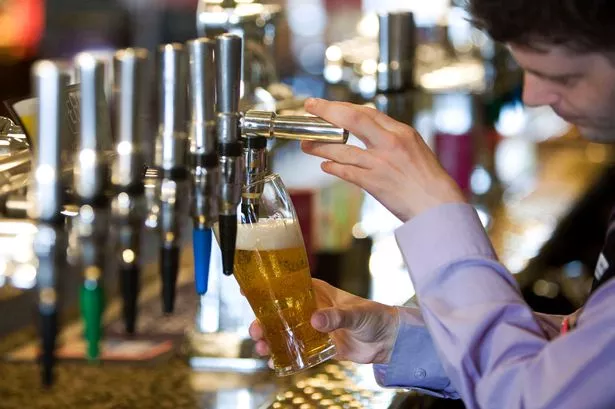A new study has found that global heating was affecting the quantity and quality of hops, a key ingredient in most beers, a development which is expected to make it more expensive than it is already.
and manufacturers will have to adapt their brewing methods.
Researchers who undertook the study also forecast that hop yields in European growing regions will fall by 4-18% by 2050 if farmers do not adapt to hotter and drier weather, while the content of alpha acids in the hops, which gives beers their distinctive taste and smell, will fall by 20-31%.
“Beer drinkers will definitely see the climate change, either in the price tag or the quality,” said Miroslav Trnka, a scientist at the Global Change Research Institute of the Czech Academy of Sciences and co-author of the study, published in the journal Nature Communications. “That seems to be inevitable from our data.”
Beer, which is the third-most popular drink in the world after water and tea, is made by fermenting malted grains like barley with yeast. It is usually flavoured with aromatic hops grown mostly in the middle latitudes that are sensitive to changes in light, heat and water.
Read also: UN calls for more policy focus on women
The study found that in recent years, demand for high-quality hops has been pushed up by a boom in craft beers with stronger flavours. But emissions of planet-heating gases are putting the plant at risk.
To come up with their findings, the researchers compared the average annual yield of aroma hops during the periods 1971-1994 and 1995-2018 and found “a significant production decrease” of 0.13-0.27 tons per hectare. Celje, in Slovenia, had the greatest fall in average annual hop yield, at 19.4%.
The study found that In Germany, the second-biggest hop producer in the world, average hop yields have fallen 19.1% in Spalt, 13.7% in Hallertau, and 9.5% in Tettnang.
Beer-brewing in central Europe dates back thousands of years and is a cornerstone of the culture. According to a report from the Japanese beermaker Kirin, People in the Czech Republic drink more beer than anywhere else in the world.
In Germany, where beer-making has been regulated for 500 years by a “purity law”, the Oktoberfest welcomes 6 million beer-drinkers from across the world into its tents each year.
Story was adapted from the Guardian.
